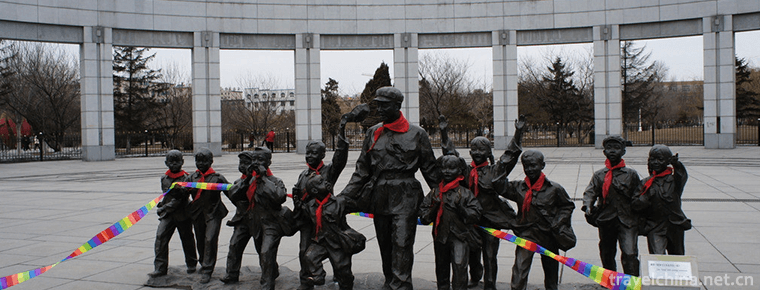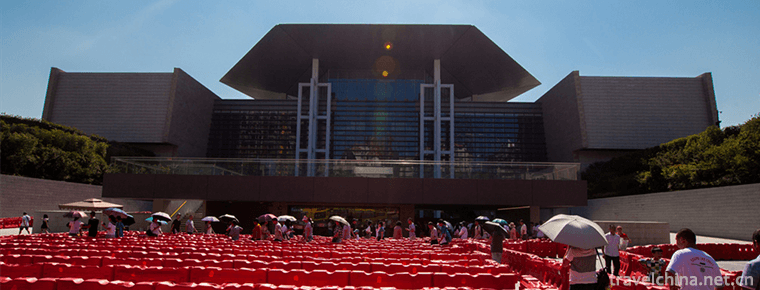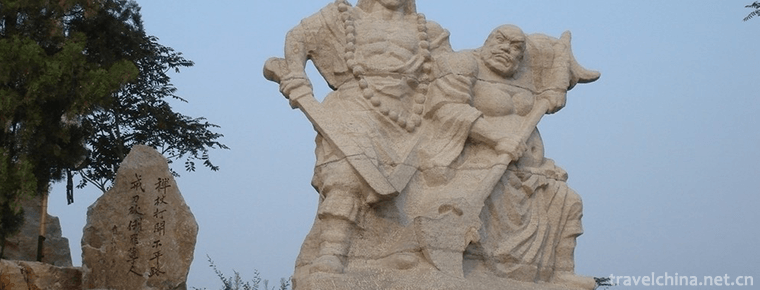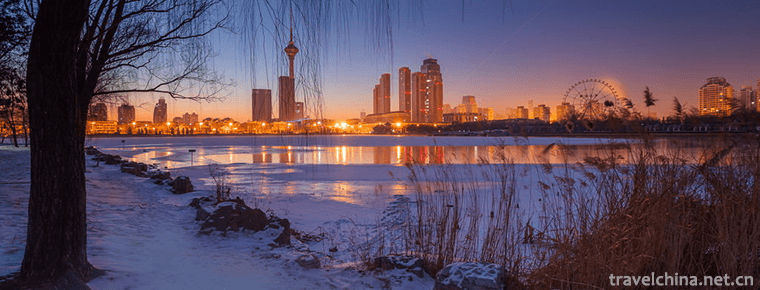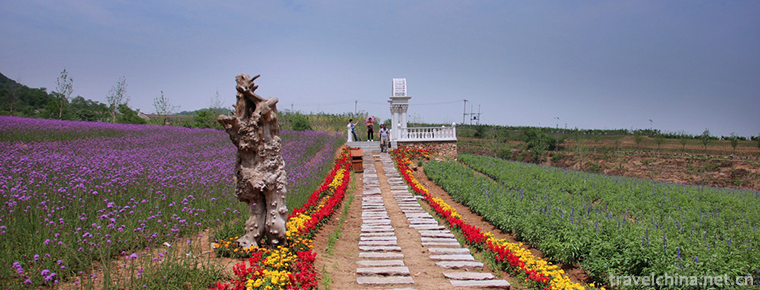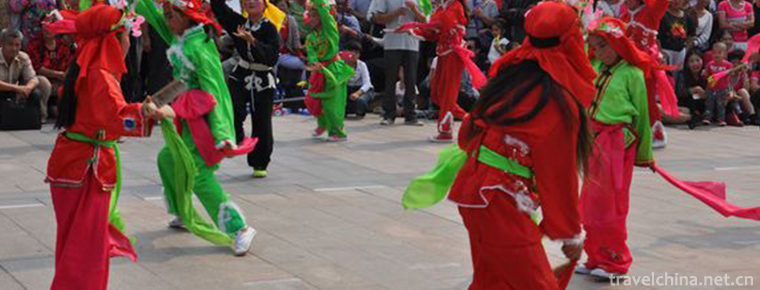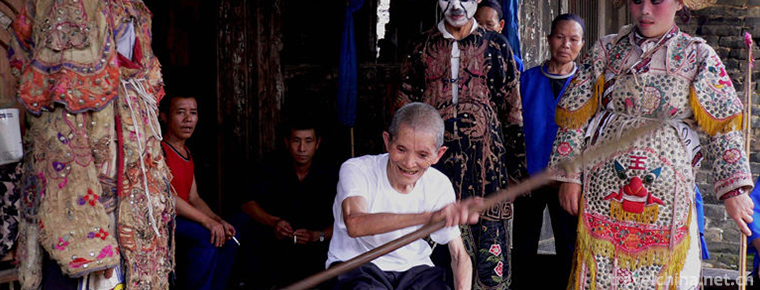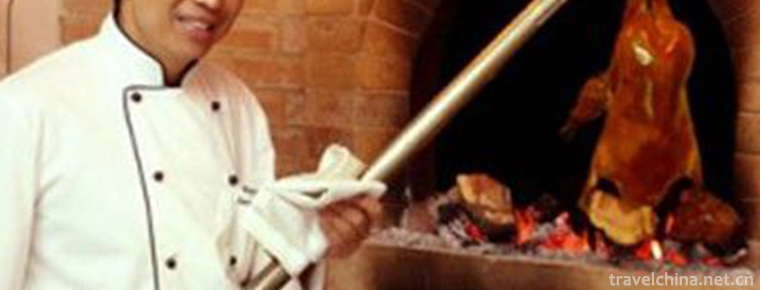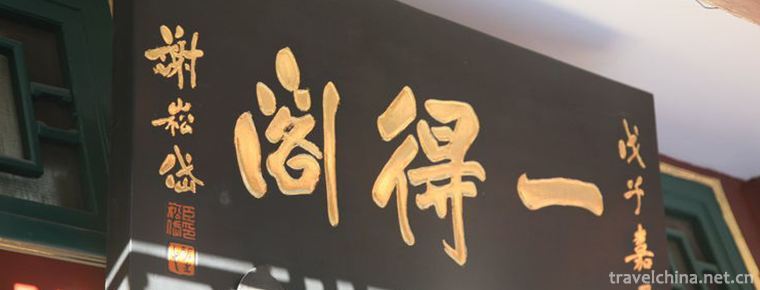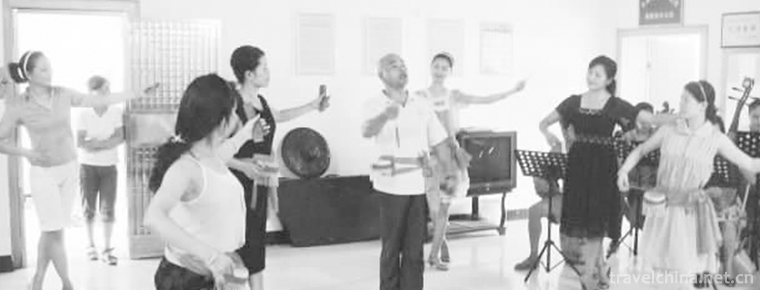Xibo Westward Movement Festival
Xibo Westward Movement Festival
The Xibo Westward Moving Festival is the commemoration day of Xibo Westward Moving and Garrisoning the Border, one of the national intangible cultural heritages.
The Xibo people's westward migration Festival is called "418 Festival" because it is on April 18 of the lunar calendar. Because of the intention to miss relatives, also known as the Day of Remembrance, Sibo compatriots in Xinjiang are known as "Du Yinbai specializes in Zhakun". Every year on April 18 of the lunar calendar, the Xibo people in Xinjiang gather together for a picnic and perform songs and dances to commemorate the heroic achievements of their ancestors in Garrisoning the border.
On May 20, 2006, the Xibo Westward Moving Festival declared by Chabuchal Xibo Autonomous County of Xinjiang Uygur Autonomous Region was approved by the State Council and listed in the first batch of national intangible cultural heritage list (category: folklore; number: _-9).
historical origin
According to historical records, on April 18 of the 29th year of Qianlong (1764) in the lunar calendar, the Qing government collected 1018 Xibo officers and soldiers from Shengjing (now Shenyang) and other places, with a total of 3275 members of their families, led by Manchu officials, and moved westward to the Yili area of Xinjiang for reclamation and border garrison. On April 18 of this year's lunar calendar, the Xibo people who moved west to Xinjiang and the Xibo people who stayed in the Northeast gathered in Taiping Temple, the Xibo family temple in Shengjing, to pay homage to their ancestors and to have a farewell dinner. The next morning, Xibo officers and soldiers and their families, farewell to their parents and villagers, embarked on a long journey of westward migration. After a year and five months of hard journey, we arrived in Yili area of Xinjiang. The Sibo Autonomous County of Chabuchar was where they were stationed, and the Sibos there were their descendants.
Since then, on the eighteenth day of April in the lunar calendar, people have to arch stoves in temples, kill pigs, eat sorghum rice, and every household has to be a family and have a dinner to commemorate the historic feat of the Xibo ancestors moving westward, narrate the achievements of defending the northwest frontier of the motherland, and remember the departed flesh and blood compatriots. This day became the traditional festival of Xibo nationality.
On the day before the expedition, the officers and soldiers, their families and relatives, relatives and friends of their elder brothers and sisters gathered at the Xibo Temple of Taiping Temple to have a farewell meal, drink a farewell wine and March for their compatriots who moved westward in military uniform. Since then, every year on April 18 of the lunar calendar, in Xibo Village Tun, we have to arch stoves in the temple, kill pigs, eat sorghum rice. Every household goes to be a family and has a dinner to commemorate the historical feat of the Xibo people's westward migration, to recount the achievements of defending the northwest frontier of the motherland, and to remember the departed flesh and blood compatriots.
Since the founding of New China, there have been exchanges between Xinjiang and Xibo people in Northeast China, and the "Fourth and Eighteenth Festivals" have also been mentioned. Both the Party and the government attach great importance to this festival of the Xibo nationality. When the "April 18" day comes every year, the municipal government and the citizen's committee will hold tea parties, film reception, and celebrate this traditional glorious festival with the Xibo nationality. Beginning in 1982, during the "Fourth and Eighteenth Festivals", the Xibo people in Shenyang gathered in Beiling Park to hold commemorative activities. This paper introduces the history and process of the Xibo people's westward migration, describes the significance of the westward migration to garrison the border, encourages the Xibo people to inherit the glorious traditions of their ancestors, carries forward the patriotism spirit of their ancestors, and makes contributions to the socialist modernization of the motherland. We had a picnic and performed songs and dances in memory of the flesh and blood compatriots who defended the northwest frontier of our motherland. Every year, the Provincial People's Committee comes to congratulate and celebrate the festival with the Xibo people.
Major activities
Folk art activities of Xibo Westward Migration Festival are mostly held in the form of temple fairs in the monasteries of villages and towns, or in the field according to the ancient custom of advocating nature. Its main activities include "Guan Dimo"(imitate Guan Yunchang's loyalty to serving the country in the Three Kingdoms), praying to Samuda God for well-being (meaning praying for a well-off home, expelling the plague God to return to heaven), praying to the "goddess of ladies" in charge of life, praying for more children and more blessings, and shaman's jumping and climbing) ladder, etc. At the same time, archery, wrestling, horse racing, Yangko twisting, folk song competitions, stilts and other activities are held.
Cultural characteristics
Folklore art of Xibo people's Westward Moving Festival in Xinjiang has formed the following cultural characteristics in the space and time that has lasted for more than 200 years:
1. It inherits the ancient fishing and hunting customs and primitive cultural forms of the ancient Xibo people who engaged in fishing and hunting in Daxing'an Mountains.
2. Inheriting the original cultural customs of Shamanism. Shamanism plays the role of "Shaman is a dancer, a singer and a whole orchestra" in Xibo folk art. There are many primitive forms of Shaman's climbing knife ladder ceremony, divine dance ceremony, Shaman song, Shaman music and so on, which provide the most precious living materials for China and the world to explore Shaman culture.
3. It inherits the cultural tradition of "riding and shooting in Mandarin". From the time when Xibo people moved to the west to reclaim and garrison the border areas to the 1940s, they learned Manchu Manchu for a long time and created Sibo language on this basis. It provides a rare "living fossil" for the preservation and research of the Manchu-Tungusic folklore in China and the world.
4. It inherits the spirit of patriotism and dedication of Xibo people. In order to guard the western border of the motherland, more than 4,000 Xibo officers and soldiers and their relatives set out from Shengjing and marched west along the northern Mongolian road. They overcome numerous difficulties along the way. They shortened the original three-year period to one year and three months, and traveled more than 10,000 miles. They arrived in Yili and wrote a glorious page in the history of the motherland and the nation. Over the next two hundred years, Karen was defended against foreign invasion, maintained local stability, participated in the struggle to quell the rebellion and made great sacrifices. At the same time, digging canals, building homes, developing cultural and educational undertakings and achieving conditions for survival and development have become one of the 13 inhabitants of Xinjiang. Thus, the spirit of patriotism of westward migration has been cultivated, which has become the eternal theme of Xinjiang Westward migration festival folk art.
5. The forms and contents of the activities of the folk art of the Westward Migration Festival have gradually evolved from the past temple fair forms, and have become a series of changes, such as the active participation of some members of the national minority to members of the whole nation, the popularization of folk art from private to official, from Xinjiang to Northeast China, and the joint participation of other members of the ethnic groups in the region, forming a spanning time and space. And regional, vertical and horizontal cultural space.
Inheritance and Protection
Inheritance value
Through the festival activities of the "Westward Moving Festival", the splendid and long-standing cultural tradition, national psychology, national emotions, folk beliefs, folk customs and various arts and crafts of the Xibo nationality are displayed. It is mainly inherited from the only Xibo Autonomous County in China - Chabchal Xibo Autonomous County, radiating to the national Xibo Autonomous Region, forming a cultural communication space integrating history, time, space, region and spirit.
Current situation of inheritance
For various reasons, the primitive literary form in the folk art of the Westward Migration Festival is in danger of being lost. For example, the ancient fishing and hunting customs and their oral and written literary products are gradually disappearing and are seriously lost. Ancient Shaman culture is facing a crisis of dynasties without inheritance. Fewer and fewer people are proficient in Manchu and Manchu. Sibo people in their 50s and younger do not understand Sibo, the main tool used for inheritance has been marginalized. Most of the few folk artists are on the high side. The characteristics of the folk art of the Westward Moving Festival are weakening or decreasing year by year, so it needs to be protected and rescued more.
protective measures
From May 25 to 28, 2010, the research center of intangible cultural heritage protection in Xinjiang Uygur Autonomous Region organized a project investigation team to investigate and photograph the Xibo "Westward Moving Festival" series activities in Chabuchal Xibo Autonomous County, Yili Prefecture.
social influence
Important activities
On June 4, 2015, the fifth economic, trade, cultural and tourism festival commemorating the 251st anniversary of Xibe's westward migration in Chabuchal Xibe Autonomous County of Xinjiang opened in the People's Square of the county. Zhang Wei, Consul General of China in Almaty, Anping, Deputy Secretary of the Party Group of the Ili Prefecture People's Congress, Deputy Director of the Standing Committee, Zack Zoudong, Vice-Chairman of the Ili Prefecture Political Consultative Conference, and relevant guests and cadres in Xinjiang, Sibo compatriots in and outside Xinjiang, relevant departments directly under the prefecture, county and municipal representatives and all walks of life in the autonomous counties and municipalities in Liaoning, Jilin and Jiangsu provinces. The representative attended the opening ceremony.
On May 24, 2016, the 32nd Xibo Friendship Association and the 252nd Anniversary of the Westward Migration Conference were held in Siye Square, Shuangcheng District.

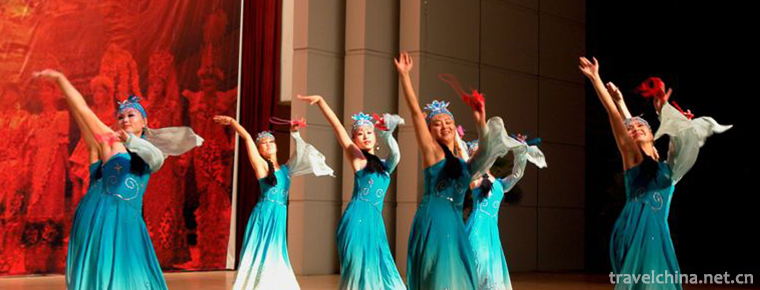
-
Leifeng Memorial Hall in Fushun
The Leifeng Memorial Hall in Fushun City is located at No. 61, East Section of Peace Road, Wanghua District, Fushun City, Liaoning Province. It covers an area of 99900 square meters, near the army sta.
Views: 168 Time 2019-01-12 -
Hunan Provincial Museum
Hunan Museum is the largest museum of history and art in Hunan Province. It covers an area of 49,000 square meters and has a total floor area of 91,000 square meters..
Views: 121 Time 2019-01-16 -
Yellow River Estuary Ecotourism Area
The Yellow River Estuary Ecotourism Area is located in the Yellow River estuary area of Dongying City, Shandong Province. It has unique ecotourism resources of the Yellow River Delta.
Views: 151 Time 2019-01-18 -
Shuipo Liangshan Scenic Area
Shuipo Liangshan Scenic Area is located in Liangshan County, Jining City, Shandong Province, with an area of 4.6 square kilometers. It was named for the Liangshan Uprising in Shuihuzhuan, one of the f.
Views: 169 Time 2019-02-08 -
Tianjin Water Park
Tianjin Water Park, formerly known as Qinglongtan, as a scenic resort, can be traced back to the beginning of the last century. It was officially opened to tourists on July.
Views: 158 Time 2019-02-21 -
Ziyunhuashi Lavender Manor
Ziyunhuashi Lavender Manor is located in Jinzhou New District, Dalian City, covering more than 1000 mu, growing in patches of lavender, verbena, sage, roses and other precious vanilla. Dalian's key to.
Views: 209 Time 2019-03-22 -
Cangzhou Lazi
Cangzhou Laozi is a traditional folk dance with strong local characteristics in the central area of Hebei Province. Laozi is one of the representative folk dances in Hebei Province..
Views: 168 Time 2019-04-04 -
Dong Opera
Dong Opera, one of the national intangible cultural heritage, is a local traditional drama in Liping County, Guizhou Province, Tongtong Dong Autonomous County, Hunan Province and Sanjiang Dong Autonom.
Views: 208 Time 2019-04-27 -
Roast duck skills
Quanjude hanging oven roast duck is a local traditional handicraft in Beijing. Quanjude Roast Duck Restaurant, a well-known old Chinese brand in Beijing, was founded in 1864 by Yang Quanren..
Views: 191 Time 2019-05-08 -
Yidege Ink Making Skills
Yidege is a local traditional handicraft in Beijing. It is well-known for producing ink. The products have bright ink, rich and light colors, fluent writing, moderate concentration, strong fragrance, .
Views: 171 Time 2019-07-11 -
Yongxin Drum
Yongxin Xiaogu is one of the traditional operas in Ji'an City, Jiangxi Province, which originated from Taoism. Legend has it that it was formed in Yongxin, Jiangxi Province during the reign of Qingdao.
Views: 177 Time 2019-07-14 -
Health preservation in traditional Chinese medicine
Health preservation in traditional Chinese medicine refers to a kind of medical activity that can prolong life by taking care of life, strengthening physique and preventing diseases in various ways. H.
Views: 230 Time 2019-08-03
